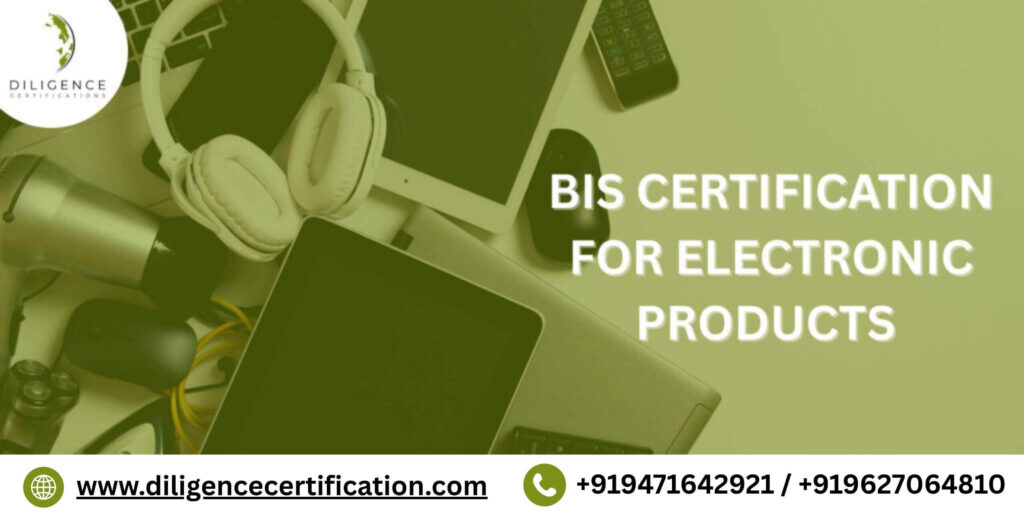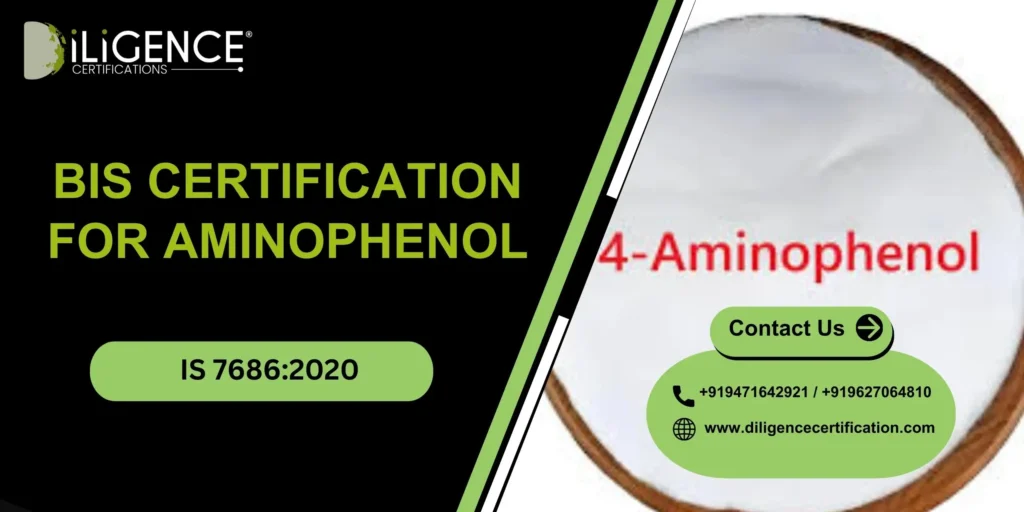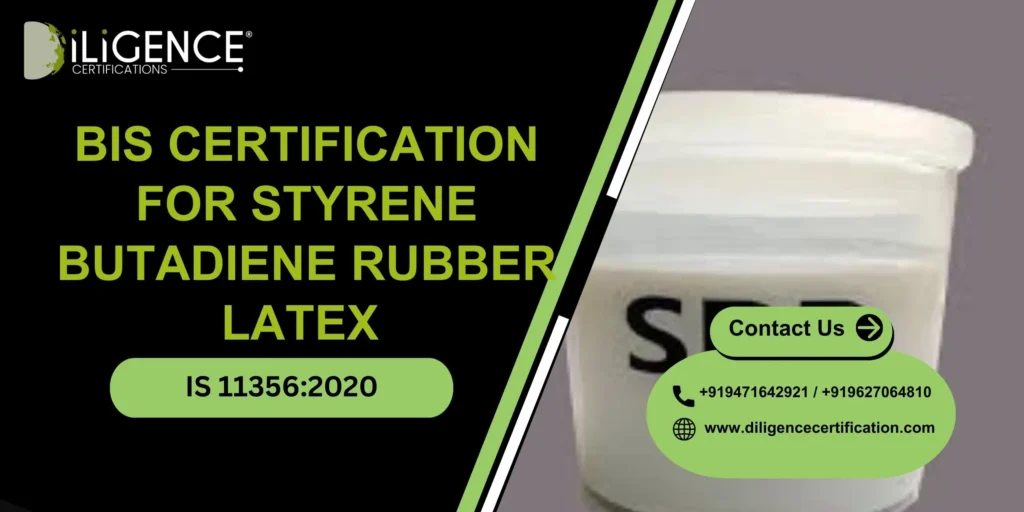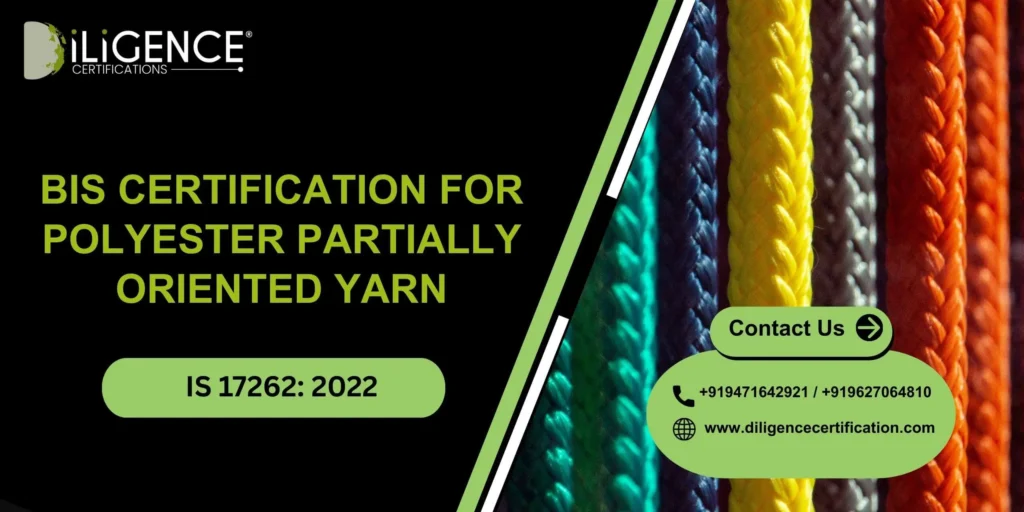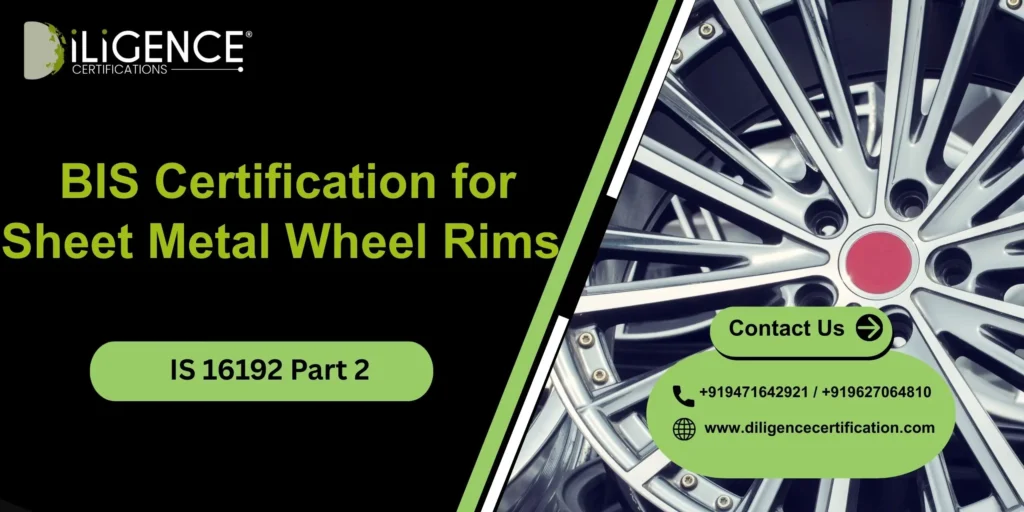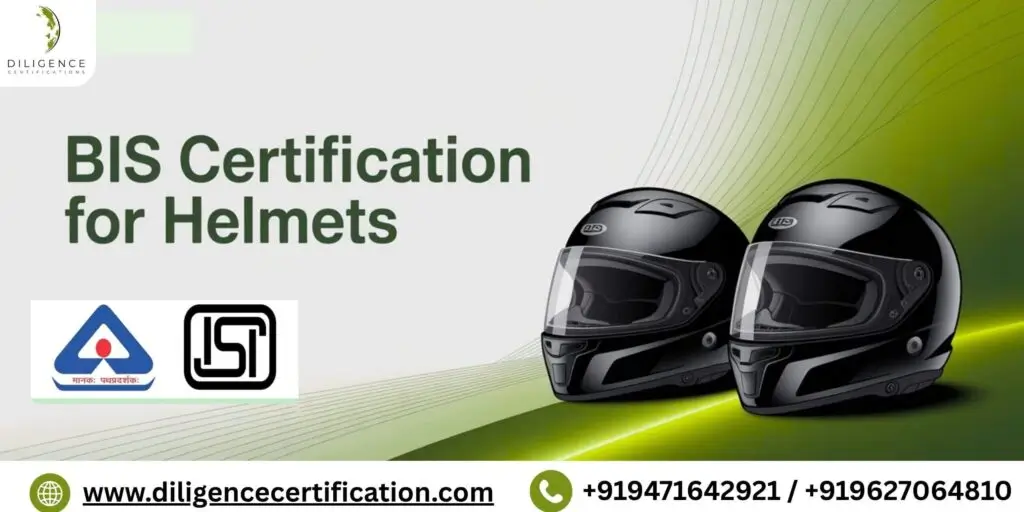- If you want to sell electronic items in India, obtaining BIS certification for electronic products is obligatoy.
- The certificate proves that your product complies with safety and quality standards set forth by the Indian Government. Without such certification, the import, sale, or marketing of any product is illegal in India.
- In today’s highly competitive market for electronics, BIS for electronic products is not just a mandatory point; it has now also been taken as a sign of assurance that the product will be accepted for being of good quality and safe for use in the market.
- Beginners, as well as seasoned manufacturers, need to have a basic understanding of BIS Certification for electronic products for compliance and customer assurance. Now, let’s get into deep about this certification, its importance, and what BIS certification consultants will do to make life easier for you!
What Is BIS Certification for Electronic Products?
The Bureau of Indian Standards (BIS), is the only body that issues rules, regulations, and reference points for establishing the highest standards of quality and safety for service providers and consumers in India. The process of BIS certification for electronic products signifies compliance with these fundamental standards.
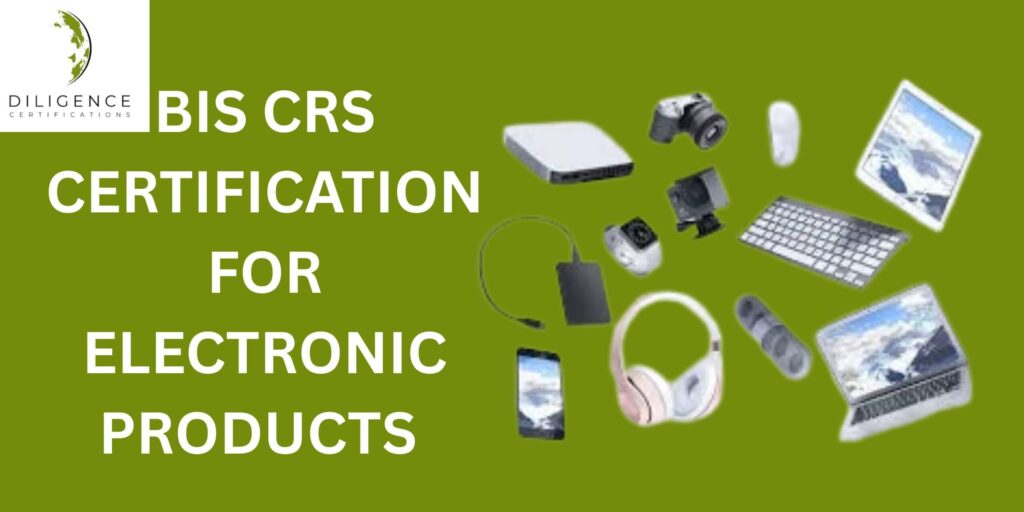
BIS certification for electronic products is often represented as the ISI mark, or in the case of electronic products, with CRS BIS (Compulsory Registration Scheme) which covers a large number of : mobile chargers, LED lights, smart appliances, power banks, industrial appliances, etc. when you get certified for BIS for electronic products, it ensures manufacturers and importers have provided the required documentation and conformity assessments to ensure the products meet India’s safety, EMC, and performance requirements – allowing legal sale in the market and consumer confidence.
Why BIS Certification is Essential for Electronic Products
Regulatory Compliance
Indian regulations specify certifications for several electronic products under CRS BIS. A lack of compliance can lead to import bans, product seizures at customs, imposing fines, and other legal ramifications.
Consumer Trust & Brand Image
BIS certification speaks of safety and assures quality to the final consumer for electronics. The familiar BIS mark instills trust in products, increases their marketability, and helps set a brand apart on crowded shelves.
Access to Market
Electronic goods without the ISI mark or CRS BIS certification might be prevented from entering the Indian market. Often, a prerequisite in India is a certificate to sell via e-commerce, through distributors, or big-box retailers.
Global Benchmarking
The standards of BIS generally meet an international or IEC standard, whereby an electronic product certified by BIS would most probably be accepted in another market-interspersing export operations.
Which Electronic Products Need BIS Certification?
Under CRS BIS, over 100 categories of electronic products require mandatory certification, including:
- Mobile and laptop adaptors
- Inverters and CVT chargers
- LED lamps and luminaires
- Microwave ovens and electric cookers
- Electric motors and batteries
- Audio players, CCTV cameras, and many more
If your product is listed under CRS BIS, you must obtain BIS certification for electronic products before production, import, or sale.
Types of BIS Certification
Understanding the types of BIS certification is necessary to know the pathway that your electronic products must follow. Here is a detailed view:
1. CRS BIS (Compulsory Registration Scheme)
This is the most common type of certification offered to new-generation electronic products. It is enforced for products listed in the notified list, including LED lamps, chargers for mobiles, and laptops. As per CRS BIS, the product is to be tested by a third-party testing laboratory recognized by BIS. Once the license is issued, it is valid for two years and can be renewed.
2. ISI Certification
ISI certification is primarily for products that come under Indian Standards except CRS BIS. Traditionally, this included wires, cables, switches, and household electrical appliances. The ISI mark means that the product complies with a particular Indian Standard and has been subjected to periodic factory inspections.
3. Self-Declaration of Conformance
In exceptional cases, manufacturers are allowed by BIS to make a self-declaration that their electronic products comply with the standards required. This is, however, only for non-critical products and components. Manufacturers may still be required to produce evidence
Documents Required for BIS CRS Registration
The following is a list of essential documents necessary for successfully applying for BIS certification for electronic products under the CRS scheme:
- Manufacturer’s Business License – Proof of charge of legal incorporation and working business.
- Product Test Report – The report on test results issued by a BIS-recognized laboratory, following product testing.
- Factory Address Proof – The document confirming the place of manufacturing, which must be verified.
- ISO 9001 Certificate – (If applicable) Demonstrates that the quality management system applies to the factory.
- Trademark Registration Certificate – (If any) Certifies brand ownership.
- Import-Export Code (IEC) – Compulsory for foreign manufacturers who want their products to be imported into India.
- Authorized Indian Representative (AIR) Details – All foreigners must appoint an AIR in India.
- Declaration of Conformity – This states that the product conforms to the relevant Indian standards.
- Technical Specifications & User Manual – To assist BIS in understanding the structure, features, and means of application of the product.
A well-prepared and reviewed set of these documents will definitely help in fewer delays, thereby expediting the approval process, more so if sought with the help of an experienced BIS consultant like Diligence Certifications.
The BIS CRS Certification Process

For electronic products, the BIS certification process is made up of various methodical activities that the product undergoes to establish compliance. It basically involves:
1. Identifying Applicable Standards
Establish the relevant IS/IEC standard for your product. For example, IT equipment usually follows IS 13252.
2. Appoint a BIS Certification Consultant (Optional but Recommended)
Employing a professional consultancy like Diligence Certifications makes the BIS process much easier to navigate. These BIS certification consultants handle product testing, documentation, filing of applications, and audit preparation, thus making absolutely sure that your application is error-free and moves much faster.
3. Product Testing
Have your product samples tested in the laboratory acknowledged by BIS. Depending on the product, tests can be related to safety, electrical insulation, EMI/EMC performance, lightning protection, and thermal regulation.
4. Online Application
After receiving the test reports, fill out the application form on the BIS portal. Attach the test report along with technical drawings, factory details, declarations, and receipts for payment. Any inaccuracies will result in the rejection of the application.
6. Grant of Certification
After completing audits and verifying documents, the BIS issues certifications along with a license number and detailed scope of approved models and manufacturing plants.
7. Renewal & Surveillance
The BIS Certification under CRS stands valid only for 2 years and must be renewed before expiry, in addition to conducting periodic surveillance audits for continuous compliance. Maintaining updated records and production consistency would save a lot of surprises.
Thus, some of the key steps, and especially with the assistance of professional BIS certification consultants such as Diligence Certifications, will see these certifications getting done with minimal delays and with full confidence that all compliance issues have been addressed.
Role of BIS Certification Consultants
While being completely possible to get the BIS certification without assistance, many brands choose to get consulting services for the same. This is why consulting expertise evolves into a treasure for the truly conscientious:
Expertise : BIS certification consultants clear up your doubts on the BIS standards, testing protocols, documentation, and frequent regulatory updates.
Time Efficiency : Consultants coordinate the entire process, from lab booking and application filing to audit scheduling—which offers a quicker turnaround.
Fewer Mistakes : Their experience allows them to minimize errors in paperwork and delays from rejection or noncompliance in submissions.
On-Going Support : A good consultant will not only assist until the certification is obtained but also with renewals, new product certifications, expansion, audit preparedness, and label verification.
Cost Avoidance : Improper applications or failed audits will be rather costly. BIS certification consultants keep your expenses at an arm’s length by ensuring that you adhere to the procedures properly right from day one.
Diligence Certifications, with its strong track record, offers comprehensive support throughout the BIS journey, giving your product a smooth entry into the Indian market and peace of mind regarding ongoing compliance.
Common Challenges & How to Avoid
| Challenge | Solution |
| Choosing the right standard | Consultants and BIS documents help you identify the right IS/IEC standard. |
| Test lab backlog | Pre-schedule labs; use accredited private labs for faster turnaround. |
| Factory audit readiness | Proper documentation and a pre-audit checklist minimize nonconformities. |
| Application rejections | A thorough review by consultants reduces the risk of rejection. |
Scope and Duration of CRS BIS Registration for Electronics
- Application – CRS BIS covers over 100 electrical equipments, such as chargers, appliances, batteries, and industrial equipment.
- Timeline – The process takes anywhere between 4 to 8 weeks from test report to certification. In some cases, this timeline is shortened to 3-5 weeks by using bis certification consultants.
BIS Registration Costs Explained
| Cost Component | Details |
| Lab Testing | Varies by product type and complexity—mandatory for all CRS BIS categories. |
| BIS Application Fee | Covers submission and review under the BIS portal system. |
| Consultant Services | Depends on scope—testing coordination, filing, factory prep, compliance. |
| Surveillance Audits | Annual reviews to maintain license validity and compliance. |
Exact pricing depends on your product specifications and scope. For a tailored cost breakdown, consult with Diligence Certifications for expert guidance.
Conclusion
BIS Certification for electronics in India is not just a regulatory requirement, it is a chance to establish credibility and market entry. Whether it is for a new range of products or to enter the Indian market, the first action item is to understand the certification process, timelines, and standards to be assured.
With the right support from competent BIS certification consultants like Diligence Certifications, getting from determining standards, to lab testing, to navigating audits and renewals can be a smooth, timely, and mistake-free task. The right support can save a lot of time and effort!
With the right preparation and support, BIS Certification may well stop being a challenge and start being an avenue for growth, compliance, and consumer trust in one of the largest electronics markets in the world.
Frequently Asked Questions
Will all electronic products require BIS certification in 2025?
Yes, BIS certification will in fact be required for the sale of most electronic products and electronic items under the current CRS BIS scheme in India.
What is the validity of BIS certification?
The validity for BIS certification is 2 years in typically but it can be renewed if compliance is demonstrated.
What is the CRS BIS scheme?
Under the Government's Compulsory Registration Scheme (CRS scheme) certain specified electrical products must be registered with the BIS, in order to confirm their safety and quality.
Can foreign manufacturers request BIS certification?
Yes, foreign manufacturers may request certification through the use of an Indian Authorized Representative (AIR) and can follow all provisions of the BIS.
If a product is sold without BIS certification what will happen?
Yes, it will be illegal to sell an uncertified product and the product can be confiscated or a fine or some other penalty enacted.
How long does BIS certification take in 2025?
It normally takes from 4 to 6 weeks for the whole process from start to finish depending on the complexity of the product and if the evidence and documentation is ready without problems.
How do I determine the relevant Indian Standard (IS) for my product?
You can consult some BIS documents or you can hire a certification expert, such as Diligence Certifications, to determine the applicable IS/IEC standards.
Can one certificate cover more than one model?
Yes, they can be covered by one certificate if they have the same design and safety considerations. They are typically covered under one license.

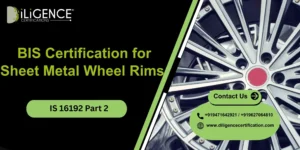
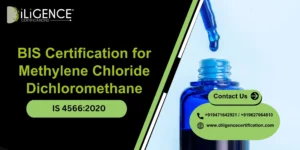
 BIS Certification
BIS Certification
 CDSCO
CDSCO
 CPCB
CPCB
 LMPC
LMPC
 WPC Approval
WPC Approval
 Global Approvals
Global Approvals
 TEC
TEC
 ARAI
ARAI
 BEE
BEE
 ISO Certification
ISO Certification
 Drone Registration
Drone Registration
 NOC For Steel
NOC For Steel



















 Business Registration
Business Registration














 Legal Services
Legal Services
 Trademark Registration
Trademark Registration
 Copyright Registration
Copyright Registration
 Patent Registration
Patent Registration
